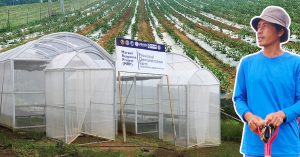When I was asked to become part of the panel on the Future of Humanitarianism, what immediately came to mind were the fresh memories in responding to the ongoing humanitarian Crisis in Marawi City, Mindanao, Philippines where more than half of the 400,000 thousands internally displaced persons (IDP) received meager support from the government because they did not come to the government-designated evacuation centers but instead to the homes and communities of their relatives. I could not believe that a small house enough for 6 persons will be able to host 20 or more other individuals – mostly relatives seeking refuge. The IDPs take turn in sleeping as they have no enough space to sleep. For the first month, IDPs outside the officially designated evacuation centers did not receive any government assistance because they were not in the official government list for the simple reason that they followed their culture and tradition of helping each other in times of needs, not fully aware of the policy and standards of the government – that IDPs prioritized for assistance are only those staying in the government-recognized evacuation centers!
The story does not end there. The 20 IDPs belongs to one family composed of one husband who is already a grandfather, two wives, their children and grand-children. The average family size in the Philippines is only 6 persons. The government and most relief agencies use this benchmark in computing allocations. That family situation is within the bounds of the Maranao culture. But not within the standards of the humanitarian system. Within the 6 month period of displacement, both IDPs and host families have to struggle together to find means to survive especially in setting where hosts already find it hard to sustain the needs of their own family before feeding another 20 mouths.
Local Civil Society Organizations have to lobby hard so that these home- and community-based IDPs will be included in the official list and their condition and peculiarities be considered. The Philippine Government had difficulty adjusting its standards to that condition; so with the international agencies. Tracing IDPs scattered in homes and communities is not easy and the humanitarian response system is not also ready to address this culturally-dictated action of the displaced people.
The situation of the Marawi IDPs highlighted the fact that in every disaster situation, survivors and communities would likely respond and take initiatives in accordance with customs and traditions not by humanitarian standards and protocols. The question is: does the World Humanitarian System recognize these local initiatives important for survival of people in crisis? The sad thing is that these initiatives are often not recognized because mainly, government and humanitarian agencies operate based on their own modalities and standards. In the above case, common complaint was the neglect of the role and needs of the host families who also have to go hungry after sharing meager resources with their IDP relatives for weeks and even months. The hosts do not receive assistance for they are not included in the statistics of the affected.
Survivors and local communities respond to the emergency with meager resources, but always tap the best of their culture, i.e. helping those in need as much as they can. However, more often the community initiatives are lost in the intricacies of the official humanitarian system. Local initiatives are seldom captured in the reports of humanitarian organizations.
Are the efforts of survivors and local communities responding to disasters considered part of the Humanitarian Action? Technically, not! Because it is not part of the so-called Humanitarian System. But, how can we neglect the self-help initiatives of local peoples whose humanitarian actions are embedded in their culture and tradition? Communities may have limited resources but the culture of self-help is actually saving lives in an emergency and disaster situation. Is it not the best action to support and nurture these local efforts?
If we talk of the future of Humanitarianism, first and foremost, such future should be recognizing local capacities apart from needs. Full support should be accorded to such local, survivor and community initiated response efforts to make the humanitarian system INCLUSIVE! ECOWEB in its response to Marawi crisis with support from various partners has employed Survivor Community Led Approach that considers the IDPs and the affected not as victims but survivors with capacity to plan and manage the implementation of a response that ensure their survival with dignity and the protection of their rights.
It is in believing and recognizing their capacity, that IDPs are enabled to recover faster. It is by allowing them to determine who are the most vulnerable that they learn to share and depend on each other. It is by allowing them to participate in the planning and implementation of emergency response, that humanitarian work become more humane.
Despite the lack of official call from the Philippine government for international help to the Marawi crisis, a number of international humanitarian organizations still managed to provide help through or with their national and local partners. The case of Marawi has again shown the much needed support from the international community for the survival of people affected of major disasters. And some of these humanitarian agencies we made partner with in the promotion of the Locally-led Response to Crisis in Marawi have shown that by practicing commitment to localization, humanitarianism can indeed be made more centered on the people, their rights and dignity as human, and not only focused on standards not locally contextualized. Locally-led response process revealed as well the need for capacitating local humanitarian actors who are expected to know better the culture and the complexity of the local contexts.
In all disaster response ECOWEB has made in the past including Super Typhoon Haiyan and Marawi, what we have observed is that affected people and communities of disasters are not only concerned about the need for relief and recovery but also of other underlying issues to disasters and their vulnerability. Issues on transparency, accountability and participation are also common concern as in development processes. It is the lack of participation and transparency in emergency response that we often hear people’s doubt and questions on why they could not feel the commensurate impact of the reported millions and billions of pesos (Philippines) raised by many humanitarian agencies and budgeted by the government.
Participatory analysis with people – both affected of disasters and those continually living in poverty and conflict – revealed that they actually do not demarcate development and humanitarian concerns. To them the roots and impact of under-development and humanitarian crisis are similar and inter-related. Humanitarian crisis and disasters is also seen as just a disruption of a development process or a result of failure in ensuring sustainable development. An emergency intervention therefore that is disempowering may also mean countering sustainable development efforts.
When we implemented the survivor community led response process – IDPs’ overwhelming demand is for cash assistance. It is more empowering the IDPs say. In retrospect, this made ECOWEB think – why have we denied the IDPs and disaster affected people we assisted in the past of their right to help themselves while we provide support, the right to choose, and the simple right to exercise their capacity to buy the food items they need according to their preference and culture? And we questioned ourselves why have we in fact burdened much ourselves in buying, packing, distribution of relief items when in fact this can be shared with and be done by the IDPs and the communities themselves? But how can we also expect ECOWEB to empower IDPs and communities when we don’t have the absolute power also over the resources we use in emergency response? Is this the missing link to making Humanitarianism really human?
It must be noted that this present architecture of the World Humanitarian System is only a by-product of the centuries of unequal relationship between the what we call the northern countries and what is now considered developing countries. Hence, if we talk about the future of “World Humanitarianism”, such future should not then be separated from the issues of injustice, inequality and power imbalance where vulnerabilities of most vulnerable countries were rooted. World Humanitarianism could become truly humanitarian only if it also addresses the issues of unequal relationship among nations and agencies, between the Northern and Southern countries, between northern and southern agencies.
In brief, to make the future of World Humanitarianism more relevant, humanitarian work should not limit only to immediate and recovery needs of the affected of disasters and emergencies but should enable communities and local to also address the root causes of disasters and the historic, economic and political roots of the vulnerabilities of many countries and communities. And this can be done only by ensuring that the framework of sustainable development should not be forgotten in times of disaster, i.e, empowering and capacitating communities and people to help themselves better with the support of the humanitarian agencies and that this also entails empowerment, capacity development and sustainability of local humanitarian actors.


